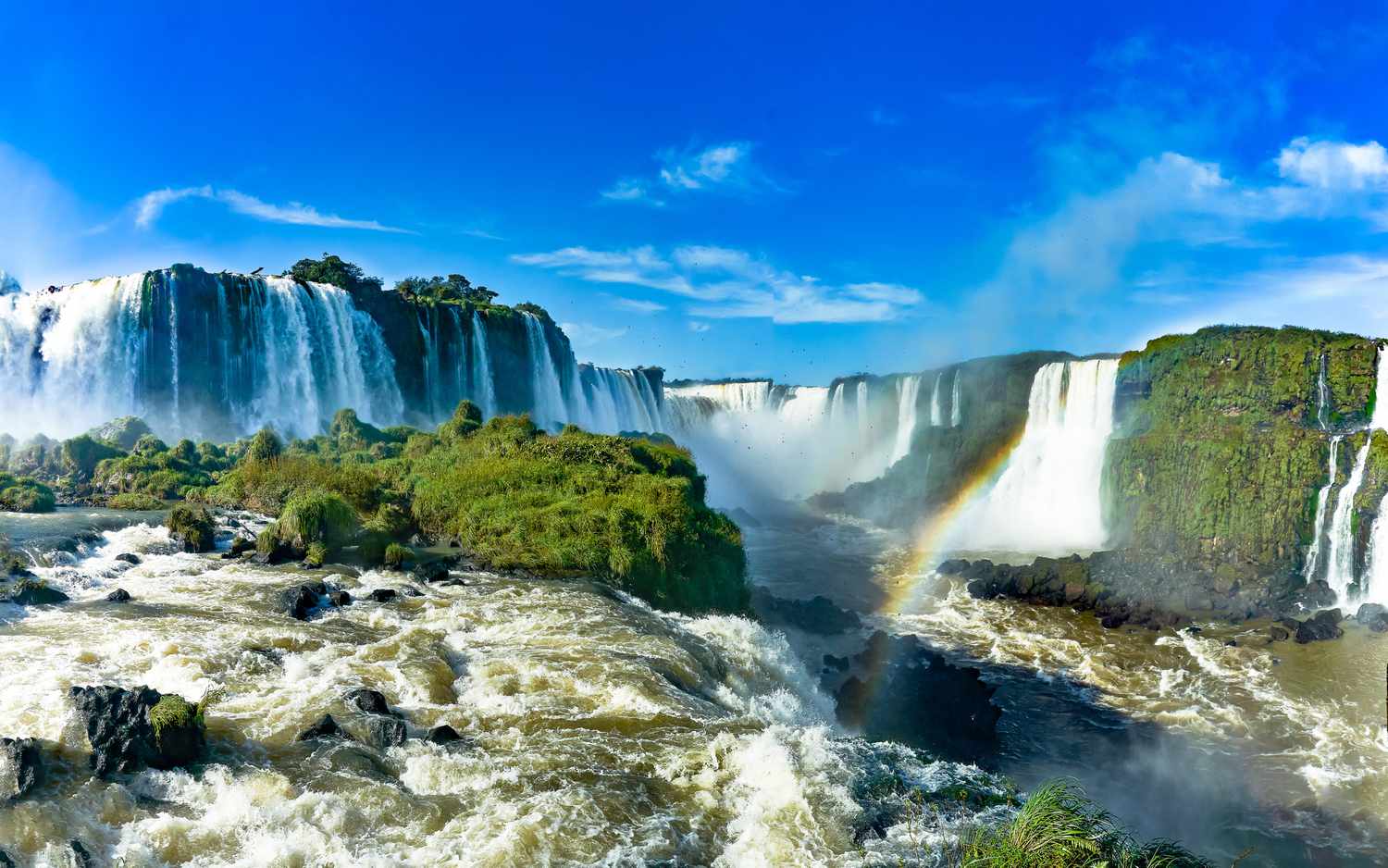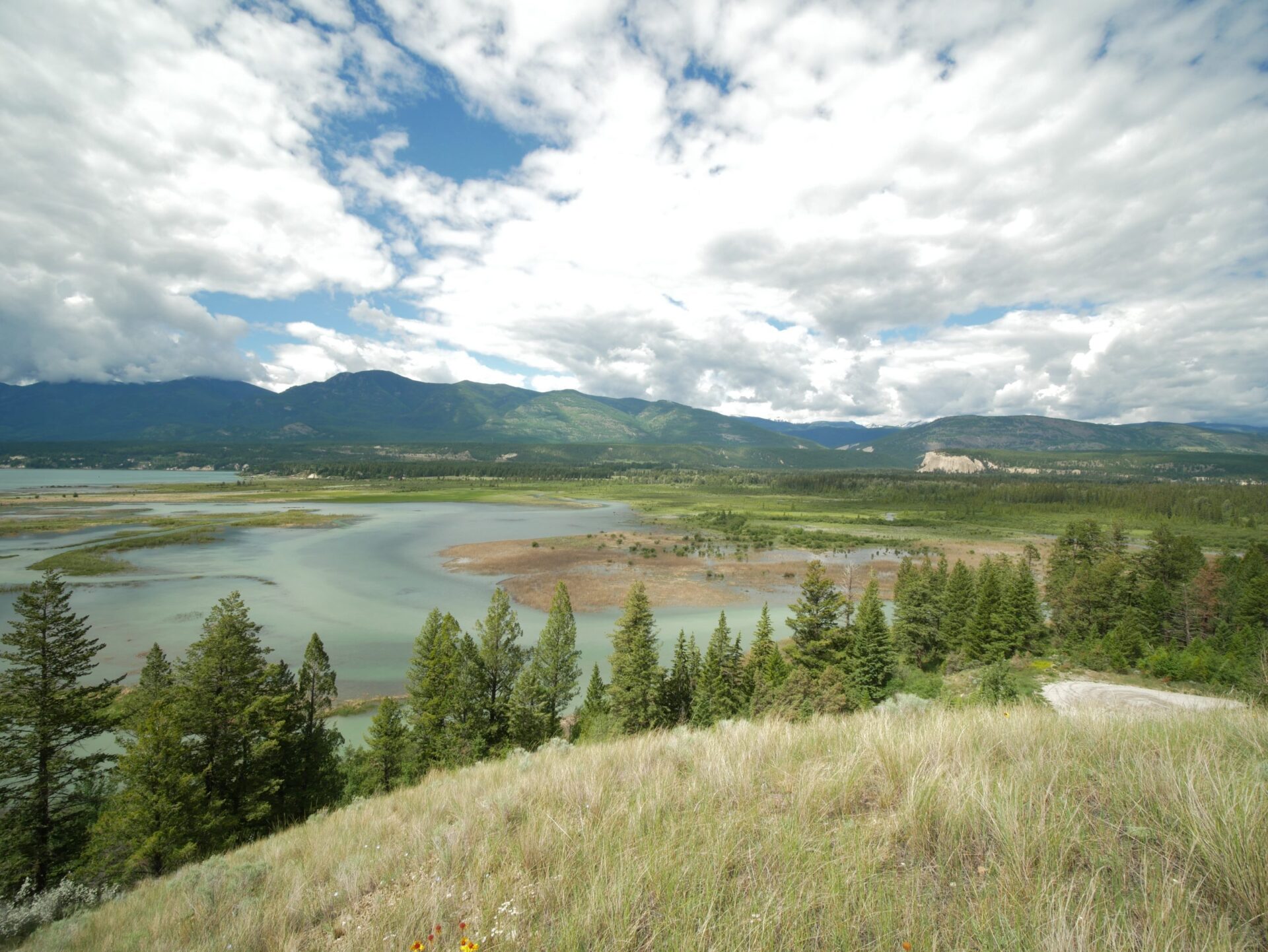1. Habitat Protection: Eco-tourism destinations often prioritize the protection and preservation of natural habitats, ensuring that they remain intact for future generations. This includes implementing measures to prevent habitat destruction, pollution, and overexploitation.
2. Wildlife Conservation: By offering wildlife-focused activities such as safaris or birdwatching tours, eco-tourism generates revenue that can be used for conservation efforts. This funding supports initiatives like anti-poaching campaigns, habitat restoration, and captive breeding programs.
3. Sustainable Resource Use: Eco-tourism promotes responsible use of natural resources by encouraging practices such as sustainable fishing, responsible waste management, and minimizing water usage. This helps to reduce the negative impacts on ecosystems and ensures their long-term sustainability.
Key Takeaways:
- Eco-tourism promotes sustainable travel practices that minimize negative impacts on the environment.
- Environmental education plays a crucial role in raising awareness about conservation and fostering a sense of responsibility towards the natural world.
- Eco-tourism provides opportunities for visitors to learn about and appreciate the importance of biodiversity and ecosystem preservation.
- By supporting local communities, eco-tourism contributes to their economic development while encouraging environmental stewardship.
- Environmental education through eco-tourism can inspire individuals to make more environmentally conscious choices in their daily lives.
1. What is eco-tourism and how does it promote sustainable practices?
Eco-tourism Definition
Eco-tourism refers to responsible travel to natural areas that conserves the environment, sustains the well-being of local communities, and educates visitors about conservation efforts. It aims to minimize negative impacts on the environment while maximizing positive social and economic benefits for local communities.
Promotion of Sustainable Practices
Eco-tourism promotes sustainable practices through various means:
1. Conservation-focused Activities: Eco-tourism destinations often offer activities such as wildlife viewing, hiking, or snorkeling that allow visitors to experience nature firsthand while minimizing disturbance to ecosystems.
2. Environmental Education: Eco-tourism emphasizes educating visitors about environmental issues, biodiversity, and conservation efforts. This helps raise awareness and fosters a sense of responsibility towards protecting natural resources.
3. Support for Local Communities: Eco-tourism initiatives prioritize working closely with local communities, involving them in decision-making processes and providing economic opportunities through tourism-related businesses. This ensures that tourism benefits are shared equitably and contributes to sustainable development.
4. Sustainable Infrastructure: Eco-lodges and accommodations in eco-tourism destinations are often designed with environmentally friendly practices in mind, such as using renewable energy sources, water conservation measures, and waste management systems.
By integrating these principles into their operations, eco-tourism promotes sustainable practices that minimize negative impacts on the environment while supporting the social and economic well-being of local communities.
2. How does eco-tourism contribute to the conservation of natural resources and biodiversity?
Preservation of Natural Resources
Eco-tourism plays a crucial role in conserving natural resources by implementing various strategies:
1. Protection of Ecosystems: Eco-tourism operators often work closely with conservation organizations and local communities to establish protected areas and wildlife reserves. These areas serve as havens for biodiversity, safeguarding habitats and ecosystems.
2. Sustainable Resource Use: Eco-tourism promotes responsible resource use by implementing measures such as limiting visitor numbers, enforcing sustainable fishing or hunting practices, and educating visitors about the importance of conserving natural resources.
3. Restoration Efforts: Many eco-tourism destinations actively engage in habitat restoration projects, reforestation initiatives, or coral reef rehabilitation programs to restore degraded ecosystems and enhance biodiversity.
Conservation of Biodiversity
Eco-tourism contributes to the conservation of biodiversity through several means:
1. Habitat Protection: By establishing protected areas and national parks, eco-tourism helps preserve critical habitats for a wide range of species. This protection ensures the survival of endangered or threatened plants and animals.
2. Research and Monitoring: Eco-tourism destinations often support scientific research programs focused on studying local flora and fauna. This research provides valuable data on species populations, migration patterns, and ecological interactions that can inform conservation efforts.
3. Conservation Funding: The revenue generated from eco-tourism activities is often reinvested into conservation initiatives, including anti-poaching efforts, habitat restoration projects, or community-based conservation programs.
By prioritizing the preservation of natural resources and biodiversity, eco-tourism acts as a catalyst for positive environmental change while providing economic incentives for local communities to participate in conservation efforts.
3. What are some examples of eco-tourism destinations that prioritize environmental education?
The Galapagos Islands
The Galapagos Islands in Ecuador is a renowned eco-tourism destination that places a strong emphasis on environmental education. Visitors to the islands are required to follow strict guidelines aimed at minimizing their impact on fragile ecosystems. Local guides provide educational tours focusing on the unique biodiversity of the islands and the ongoing conservation efforts to protect species like the Galapagos giant tortoise and marine iguanas.
Costa Rica
Costa Rica is another prime example of an eco-tourism destination that prioritizes environmental education. The country boasts numerous national parks, biological reserves, and private nature reserves that offer guided tours led by knowledgeable naturalists. These tours educate visitors about Costa Rica’s rich biodiversity, sustainable agriculture practices, and renewable energy initiatives. Additionally, many eco-lodges in Costa Rica organize workshops and presentations on topics such as rainforest conservation and organic farming.
Lists:
– The Galapagos Islands
– Costa Rica
4. How can eco-tourism initiatives support local communities and their sustainable development?
Creating Economic Opportunities
Eco-tourism initiatives have the potential to support local communities by creating economic opportunities. By attracting tourists to visit natural areas, eco-tourism can generate income for local businesses such as accommodations, restaurants, and tour operators. This not only provides employment opportunities for community members but also encourages the growth of small-scale enterprises. Additionally, eco-tourism can promote the sale of locally produced goods and services, contributing to the overall economic development of the community.
Preserving Cultural Heritage
Another way in which eco-tourism initiatives can support local communities is by preserving their cultural heritage. Many eco-tourism destinations are located in areas with rich cultural traditions and indigenous communities. By promoting responsible tourism practices that respect and celebrate these cultures, eco-tourism can help preserve traditional knowledge, customs, and crafts. This not only enhances the sense of pride within the community but also creates opportunities for cultural exchange between visitors and locals.
5. What role does environmental education play in fostering awareness and responsibility among tourists?
Environmental education plays a crucial role in fostering awareness and responsibility among tourists when it comes to sustainable travel practices.
Raising Awareness
Through environmental education programs, tourists can learn about the importance of conserving natural resources, protecting biodiversity, and minimizing their ecological footprint while traveling. They gain a deeper understanding of how their actions as travelers can impact ecosystems and local communities. This awareness helps them make informed choices that prioritize sustainability during their trips.
Promoting Responsible Behavior
Environmental education also empowers tourists to adopt responsible behavior during their travels. It educates them on practices such as waste reduction, energy conservation, water preservation, and respecting wildlife habitats. By understanding the consequences of their actions, tourists are more likely to engage in eco-friendly activities and support local conservation efforts. This can lead to positive environmental outcomes and contribute to the long-term sustainability of tourist destinations.
6. How do eco-tourism operators ensure that their activities have minimal impact on fragile ecosystems?
Site Assessments and Planning
Eco-tourism operators ensure minimal impact on fragile ecosystems by conducting thorough site assessments and careful planning. Before initiating any tourism activities, they assess the ecological sensitivity of the area, identifying vulnerable habitats, endangered species, and potential risks. This information helps them develop strategies to minimize disturbances and protect these ecosystems.
Implementing Sustainable Practices
Eco-tourism operators prioritize sustainable practices throughout their operations. They adopt measures such as limiting group sizes, establishing designated trails or paths to prevent habitat destruction, promoting responsible wildlife viewing guidelines, and using eco-friendly transportation options. Additionally, they educate visitors about the importance of respecting nature and adhering to sustainable behavior while participating in eco-tourism activities.
7. Can you provide some case studies where eco-tourism has successfully raised environmental awareness among visitors?
The Galapagos Islands
The Galapagos Islands serve as a prime example of how eco-tourism has successfully raised environmental awareness among visitors. The islands’ unique biodiversity and fragile ecosystems attract tourists from around the world. Eco-tourism operators in the Galapagos have implemented strict regulations to protect the islands’ flora and fauna while providing educational experiences for visitors. Through guided tours led by knowledgeable naturalists, tourists learn about conservation efforts, ecosystem interdependencies, and the importance of preserving this UNESCO World Heritage Site.
The Maasai Mara National Reserve
In Kenya’s Maasai Mara National Reserve, eco-tourism has played a significant role in raising environmental awareness among visitors. The reserve is home to diverse wildlife, including the iconic African lion and wildebeest migration. Eco-tourism operators collaborate with local Maasai communities to offer sustainable tourism experiences that showcase the region’s natural beauty while promoting conservation. Visitors have the opportunity to engage in community-led initiatives, learn about traditional Maasai culture, and witness firsthand the importance of protecting these ecosystems for future generations.
8. In what ways can schools and educational institutions incorporate environmental education into their curriculum through eco-tourism experiences?
Field Trips to Natural Areas
Schools and educational institutions can incorporate environmental education into their curriculum by organizing field trips to natural areas as part of eco-tourism experiences. These trips provide students with hands-on learning opportunities where they can observe and interact with ecosystems, flora, and fauna. Guided by knowledgeable educators or local experts, students gain a deeper understanding of environmental concepts while developing a sense of appreciation for nature.
Collaboration with Local Conservation Organizations
Educational institutions can also collaborate with local conservation organizations or eco-tourism operators to design tailored programs that align with their curriculum goals. This collaboration allows students to participate in activities such as habitat restoration projects, wildlife monitoring, or community-based conservation initiatives. By actively engaging in real-world conservation efforts, students not only enhance their knowledge but also develop a sense of responsibility towards the environment.
9. What are the potential challenges faced by eco-tourism operators in balancing conservation goals with tourist demands, and how can they be addressed?
Overtourism
One challenge faced by eco-tourism operators is managing tourist demands while ensuring conservation goals are met. Overtourism occurs when destinations become overcrowded due to excessive visitor numbers, leading to negative impacts on the environment and local communities. To address this challenge, eco-tourism operators can implement visitor management strategies such as limiting daily visitor quotas, implementing reservation systems, or promoting off-peak travel seasons. This helps distribute tourist flows more evenly and reduces the strain on fragile ecosystems.
Community Engagement
Another challenge is balancing conservation goals with the needs and aspirations of local communities. Eco-tourism operators must actively engage with communities to understand their perspectives, involve them in decision-making processes, and ensure that tourism benefits are shared equitably. By collaborating with local stakeholders, operators can develop sustainable tourism models that prioritize community well-being while conserving natural resources. This may include initiatives such as revenue-sharing programs, capacity-building workshops for community members, or supporting local enterprises through responsible tourism practices.
In conclusion, eco-tourism and environmental education play a crucial role in promoting sustainability and conservation efforts. By offering immersive experiences in natural settings and educating visitors about the importance of protecting the environment, these initiatives contribute to the preservation of biodiversity and foster a sense of responsibility towards our planet.
What is environmental eco tourism?
Ecotourism is a type of tourism that is promoted as environmentally friendly and responsible. It involves traveling sustainably to natural areas, preserving the environment, and benefiting the local communities.
What is the role of ecotourism in environmental awareness?
Raises Environmental Consciousness: This endeavor increases individuals’ awareness of the various resources they extract from the environment. Eco-tourism aims to help people comprehend the challenges they would face if they no longer had the current support from the environment in which they thrive.
Is eco tourism and environmental tourism the same?
Sustainable tourism emphasizes the social, economic, and environmental effects of travel, whereas ecotourism primarily prioritizes the environment.
What are the 3 main principles of ecotourism?
Ecotourism is characterized by three main factors: being centered around nature, promoting environmental education, and implementing sustainable management practices. This definition was established on May 19, 2022.
What are the 7 principles of ecotourism?
The principles of ecotourism involve reducing negative impacts on the physical, social, behavioral, and psychological aspects of the environment. It also aims to raise awareness and respect for the environment and culture. Ecotourism seeks to provide positive experiences for both tourists and local communities, while also providing financial support for conservation efforts.
What is the most important benefit of ecotourism?
Ecotourism has the potential to combat poverty and give power to local indigenous communities by generating job opportunities. It also supports the preservation of natural resources. The revenue generated from ecotourism is reinvested by host communities to further develop the attractions that draw in tourists.





